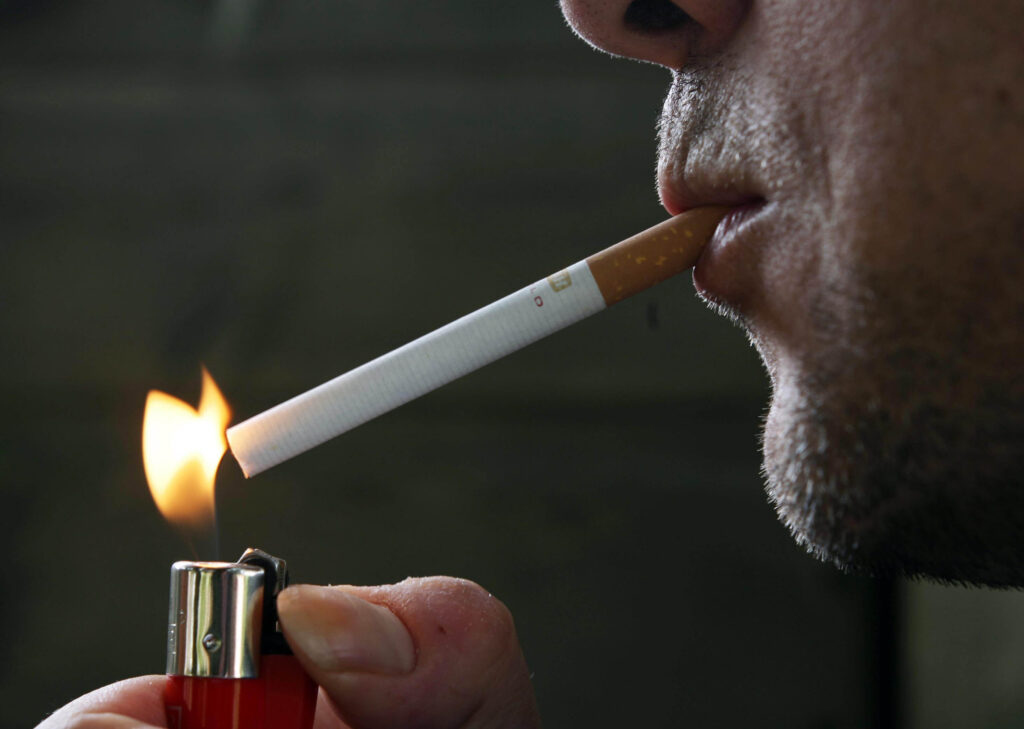Indiana’s cigarette tax is set to triple on July 1, rising from around $1 to $3 per pack, affecting thousands of smokers in the state.
Lawmakers approved the measure earlier in 2025 in an effort to address a $2 billion budget deficit, despite vocal opposition from hundreds of Indiana businesses, according to the local news outlet IndyStar.
Newsweek contacted the office of Indiana Governor Mike Braun for comment.
Why It Matters
The dramatic rise in Indiana’s cigarette tax, by around 200 percent, puts the state ahead of its neighbors in tobacco pricing, with only Illinois coming close.
State leaders projected the change will generate $800 million over two years for Indiana’s Medicaid program, addressing a budget shortfall, according to IndyStar.
Proponents, including the American Cancer Society and the Indiana Chamber of Commerce, hailed the measure as a critical public health and fiscal move.
However, convenience store operators and industry representatives cautioned that the surge will impose new financial burdens on lower-income smokers and potentially shift business out of state, risking closures and cuts in jobs.
What To Know
The tax will take effect on July 1, 2025, ramping up the state’s cigarette tax to $2.995 per pack, while taxes on cigars, e-cigarettes, and other tobacco products will also rise.
Indiana’s move follows years of proposals that previously stalled in the state Senate, before passing this year with support from lawmakers and Governor Braun.
The state’s new cigarette tax will surpass that of many of its neighbors starting Tuesday; however, it will still fall short of the tax paid in many other U.S. states.
New York, Connecticut, Maryland, and Rhode Island all have cigarette taxes higher than $3.5, according to the American Lung Association, with New York’s as high as $5.35.
The law will likely have varying impacts on different Americans in the state, Phillip DeCicca, a professor of health economics at Ball State University, Indiana, told Newsweek.
“Those who choose to quit smoking, or not start, will likely experience health benefits, but those who continue to smoke will see their real incomes reduced – these tend to be lower-income individuals,” he said.
DeCicca said that if Indianans start to purchase their cigarettes across the border, in Kentucky, for example, “such behavior would mitigate any potential health benefits.”
“It seems likely that substituting to vaping, and other forms of nicotine delivery, will be more prevalent, especially among younger smokers,” he added.
What People Are Saying
Phillip DeCicca, a professor of health economics at Ball State University, Indiana, told Newsweek: “On the positive side, it is likely that higher cigarette taxes will lead to less smoking, which is very likely to be beneficial in terms of health. Reductions can come from existing smokers or youth who may not start smoking cigarettes due to the higher taxes. Today, the real question is whether higher cigarette taxes also lead smokers to turn to vaping, though this would still very likely represent ‘harm reduction’ since the available evidence is that vaping is less harmful than cigarette smoking overall.
“On the negative side, we know that most smokers do not quit or cut back much when cigarette taxes increase due to their addictive nature. Smokers tend to have lower incomes than non-smokers so this means that cigarette taxes are highly ‘regressive’. In other words, they are taxes that are paid to a greater degree by less well-off people as opposed to, say, a progressive income tax, like the federal income tax.”
Jonathan Gruber, a professor of economics at Massachusetts Institute of Technology, told Newsweek: “70 years after the health damages of smoking first came to public attention, more than 1 in 10 Americans smoke, and it remains the largest preventable cause of death in our country. There is a large body of economic evidence that shows that higher taxes will reduce smoking – particularly among the young and the poor. The downside is that the poor will pay more for cigarettes, stretching their budgets, but that is largely offset by the fact that they will smoke less. If the revenues are used to fund smoking cessation efforts among the poor, which have shown to be effective, this is a great policy opportunity.”
Indiana Senator Pro Tempore Rodric Bray said in April, according to IndyStar: “Along with revenue comes a really pretty good public policy that was going to help persuade people to either not start smoking or stop smoking at the same time.
“We used to think that when you were relatively flush with cash, that’s a challenging budget to craft, and maybe harder than when you’re short with cash. I’m not sure that I feel that anymore. Trying to come up with a way to fund the budget with a $2 billion shortfall in the official forecast is, frankly, one of the more challenging things I think we’ve ever done.”
What Happens Next
As of July 1, the new tax will take effect.
Read the full article here
